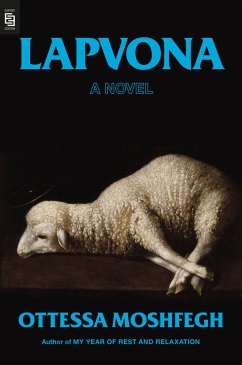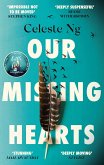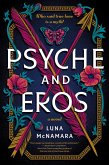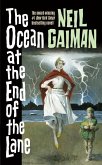Lapvona flips all the conventions of familial and parental relations, putting hatred where love should be or a negotiation where grief should be . . . Through a mix of witchery, deception, murder, abuse, grand delusion, ludicrous conversations, and cringeworthy moments of bodily disgust, Moshfegh creates a world that you definitely don t want to live in, but from which you can t look away. The Atlantic
In a village in a medieval fiefdom buffeted by natural disasters, a motherless shepherd boy finds himself the unlikely pivot of a power struggle that puts all manner of faith to a savage test, in a spellbinding novel that represents Ottessa Moshfegh s most exciting leap yet
Little Marek, the abused and delusional son of the village shepherd, never knew his mother; his father told him she died in childbirth. One of life s few consolations for Marek is his enduring bond with the blind village midwife, Ina, who suckled him when he was a baby, as she did so many of the village s children. Ina s gifts extend beyond childcare: she possesses a unique ability to communicate with the natural world. Her gift often brings her the transmission of sacred knowledge on levels far beyond those available to other villagers, however religious they might be. For some people, Ina s home in the woods outside of the village is a place to fear and to avoid, a godless place.
Among their number is Father Barnabas, the town priest and lackey for the depraved lord and governor, Villiam, whose hilltop manor contains a secret embarrassment of riches. The people s desperate need to believe that there are powers that be who have their best interests at heart is put to a cruel test by Villiam and the priest, especially in this year of record drought and famine. But when fate brings Marek into violent proximity to the lord s family, new and occult forces upset the old order. By year s end, the veil between blindness and sight, life and death, the natural world and the spirit world, will prove to be very thin indeed.
In a village in a medieval fiefdom buffeted by natural disasters, a motherless shepherd boy finds himself the unlikely pivot of a power struggle that puts all manner of faith to a savage test, in a spellbinding novel that represents Ottessa Moshfegh s most exciting leap yet
Little Marek, the abused and delusional son of the village shepherd, never knew his mother; his father told him she died in childbirth. One of life s few consolations for Marek is his enduring bond with the blind village midwife, Ina, who suckled him when he was a baby, as she did so many of the village s children. Ina s gifts extend beyond childcare: she possesses a unique ability to communicate with the natural world. Her gift often brings her the transmission of sacred knowledge on levels far beyond those available to other villagers, however religious they might be. For some people, Ina s home in the woods outside of the village is a place to fear and to avoid, a godless place.
Among their number is Father Barnabas, the town priest and lackey for the depraved lord and governor, Villiam, whose hilltop manor contains a secret embarrassment of riches. The people s desperate need to believe that there are powers that be who have their best interests at heart is put to a cruel test by Villiam and the priest, especially in this year of record drought and famine. But when fate brings Marek into violent proximity to the lord s family, new and occult forces upset the old order. By year s end, the veil between blindness and sight, life and death, the natural world and the spirit world, will prove to be very thin indeed.
One of "USA Today s Best Summer Books"
The disturbing intensity of the novel hearkens to Moshfegh s acclaimed McGlue and Eileen, but this story feels far more riotous, debauched and voracious. Washington Post
Lapvona, is hilarious, poignant, controlled, a little nihilistic . . . Moshfegh is sui generis, head and shoulders above most of her peers . . . Moshfegh s fictions are up to much more. They flirt with nihilism but are elegantly constructed. On the content level, they are crude, but on the aesthetic level, they are refined. The tension caused by this, the friction, is what s special about them. It is the source of their dark sparkle. Oprah Daily
What impresses here is not so much Moshfegh s abilities with character or narrative, or even her language . . . as the qualities Lapvona shares with a Francis Bacon painting: depicting in blood-red vitality, without morals or judgment, the human animal in its native chaos. The Guardian
The edgy novelist s new book imagines a wholly realistic medieval village rife with plagues and schemes and dastardly characters. She has crafted a trenchant allegory of life in these United States over the past several years, not coincidentally also filled with plagues and schemes and dastardly leaders. Moshfegh makes the same old story new by setting it in the past, wielding her pen like an Arcimboldian brush to sketch in the mechanics of corruption. Los Angeles Times
The most addictive part of Lapvona is the same thing that draws readers to her other works: how she renders psychological portraits of characters that reflect our own repugnance, and therefore our humanity . . . It s an exercise that s compassionate as it is tactful, one in the tradition of Flannery O Connor or Katherine Dunn, a rearranging of the world so that everyone who's not a freak is the freak . . . She s always been good about writing about the monstrosity within all of us, and making it normal, even making it kind of fun. Nylon
Lapvona tells the story of a shepherd s son who comes fatally close to the rulers of a medieval fiefdom. Moshfegh, following up on her acclaimed My Year of Rest and Relaxation continues to plumb entitlement and class; here, she adds magic and revenge. Chicago Tribune
Lapvona is a witty, vicious novel, frothing at the mouth at the opportunity to indict all the worst habits and orientations of our contemporary. . . . Moshfegh is one of our most thrilling chroniclers of the abject she is a delighted documentarian of all the excrescences and defilements of the body which force us to reckon with our inevitable decay, or what the French philosopher Julia Kristeva might term our future-deadness. Perhaps the great evolution at hand in Moshfegh s ongoing corpus is the fact of Lapvona s rather full-throated politicism. This is at heart a fable of haves and have nots, of the ways violent psychologies and apparatuses of exploitation of the poor, of resources, of women s bodies, of the land and earth itself constitute a significant stratum, if not the very bedrock, of the human condition. The Observer
Moshfegh has proven herself to be one of the most immaculate crafters of disturbed, unreliable first-person narrators . . . . Moshfegh s voice is part Dostoevsky, part Poe, and entirely her own . . . If anybody would be apt to get into the weird head space of our current moment it s Moshfegh. The Millions
The author of My Year of Rest and Relaxation, EW's pick for the best book of 2018, turns her inimitable lens to a medieval fiefdom ruled by deeply tribal ideas of class, family, and faith. The result reads like a cracked fairy tale, both familiar and fantastically strange. Entertainment Weekly, "16 novels we're excited for this summer"
Vividly brutal and low-key fantastical new historical novel . . . Lapvona is a sardonic multi-perspective exploration of a society ruled by barbarity, ignorance, corruption, and religion. Philadelphia Inquirer s Summer Preview
You won t want to put down Lapvona, a medieval fantasy that feels like a fairy tale adapted by Margaret Atwood or Ursula K. LeGuin. Barnes & Nobles, Our Most Anticipated New Book Releases of June 2022
Delightfully weird and full of the richly painted characters and captivating story that makes Moshfegh a master of her craft, this historical fiction throws readers back into Medieval times so completely, you can smell the sheep dung. You'll meet a motherless shepherd, a sadistic lord, a wet nurse with occult powers and a priest whose own faith is tested by devastating famine and drought. Good Housekeeping, The 40 Best New Books of 2022 (So Far) That You Won't Be Able to Put Down
Ottessa Moshfegh brings her trademark brutality to the Middle Ages in this allegorical pandemic novel. . . . interrogating the role faith plays in social and environmental abuses of power. Adam Morgan, The Scientific American
No one is quite who he first seems in the latest wicked tale from macabre master Moshfegh . . . Sculpting an eerily canny fabular world of contrasts and evil, cartoonish cruelty, in her signature way, Moshfegh conjures a grotesque, disturbing story of gross inequality and senseless strife. Booklist
At once immensely alien and deeply human, Moshfegh s latest is a brutal, inventive novel about the ways that stories and the act of storytelling shape us and articulate our world. Library Journal (starred review)
Deliriously quirky medieval tale . . . Moshfegh brings her trademark fascination with the grotesque to depictions of the pandemic, inequality, and governmental corruption, making them feel both uncanny and all too familiar. It s a triumph. Publishers Weekly (starred review)
One of America s most celebrated authors continues her exploration of what fiction has to offer with a further digression from the standard realist purview and into fantasy. Lapvona promises to chronicle the life of Ina, a blind midwife in a medieval village. Ina s talent doesn t stop at childcare, and allows her a special connection with the surrounding natural world. It s a fascinating premise, and I m excited to see the yarn Moshfegh is able to weave. Chicago Review of Books
The disturbing intensity of the novel hearkens to Moshfegh s acclaimed McGlue and Eileen, but this story feels far more riotous, debauched and voracious. Washington Post
Lapvona, is hilarious, poignant, controlled, a little nihilistic . . . Moshfegh is sui generis, head and shoulders above most of her peers . . . Moshfegh s fictions are up to much more. They flirt with nihilism but are elegantly constructed. On the content level, they are crude, but on the aesthetic level, they are refined. The tension caused by this, the friction, is what s special about them. It is the source of their dark sparkle. Oprah Daily
What impresses here is not so much Moshfegh s abilities with character or narrative, or even her language . . . as the qualities Lapvona shares with a Francis Bacon painting: depicting in blood-red vitality, without morals or judgment, the human animal in its native chaos. The Guardian
The edgy novelist s new book imagines a wholly realistic medieval village rife with plagues and schemes and dastardly characters. She has crafted a trenchant allegory of life in these United States over the past several years, not coincidentally also filled with plagues and schemes and dastardly leaders. Moshfegh makes the same old story new by setting it in the past, wielding her pen like an Arcimboldian brush to sketch in the mechanics of corruption. Los Angeles Times
The most addictive part of Lapvona is the same thing that draws readers to her other works: how she renders psychological portraits of characters that reflect our own repugnance, and therefore our humanity . . . It s an exercise that s compassionate as it is tactful, one in the tradition of Flannery O Connor or Katherine Dunn, a rearranging of the world so that everyone who's not a freak is the freak . . . She s always been good about writing about the monstrosity within all of us, and making it normal, even making it kind of fun. Nylon
Lapvona tells the story of a shepherd s son who comes fatally close to the rulers of a medieval fiefdom. Moshfegh, following up on her acclaimed My Year of Rest and Relaxation continues to plumb entitlement and class; here, she adds magic and revenge. Chicago Tribune
Lapvona is a witty, vicious novel, frothing at the mouth at the opportunity to indict all the worst habits and orientations of our contemporary. . . . Moshfegh is one of our most thrilling chroniclers of the abject she is a delighted documentarian of all the excrescences and defilements of the body which force us to reckon with our inevitable decay, or what the French philosopher Julia Kristeva might term our future-deadness. Perhaps the great evolution at hand in Moshfegh s ongoing corpus is the fact of Lapvona s rather full-throated politicism. This is at heart a fable of haves and have nots, of the ways violent psychologies and apparatuses of exploitation of the poor, of resources, of women s bodies, of the land and earth itself constitute a significant stratum, if not the very bedrock, of the human condition. The Observer
Moshfegh has proven herself to be one of the most immaculate crafters of disturbed, unreliable first-person narrators . . . . Moshfegh s voice is part Dostoevsky, part Poe, and entirely her own . . . If anybody would be apt to get into the weird head space of our current moment it s Moshfegh. The Millions
The author of My Year of Rest and Relaxation, EW's pick for the best book of 2018, turns her inimitable lens to a medieval fiefdom ruled by deeply tribal ideas of class, family, and faith. The result reads like a cracked fairy tale, both familiar and fantastically strange. Entertainment Weekly, "16 novels we're excited for this summer"
Vividly brutal and low-key fantastical new historical novel . . . Lapvona is a sardonic multi-perspective exploration of a society ruled by barbarity, ignorance, corruption, and religion. Philadelphia Inquirer s Summer Preview
You won t want to put down Lapvona, a medieval fantasy that feels like a fairy tale adapted by Margaret Atwood or Ursula K. LeGuin. Barnes & Nobles, Our Most Anticipated New Book Releases of June 2022
Delightfully weird and full of the richly painted characters and captivating story that makes Moshfegh a master of her craft, this historical fiction throws readers back into Medieval times so completely, you can smell the sheep dung. You'll meet a motherless shepherd, a sadistic lord, a wet nurse with occult powers and a priest whose own faith is tested by devastating famine and drought. Good Housekeeping, The 40 Best New Books of 2022 (So Far) That You Won't Be Able to Put Down
Ottessa Moshfegh brings her trademark brutality to the Middle Ages in this allegorical pandemic novel. . . . interrogating the role faith plays in social and environmental abuses of power. Adam Morgan, The Scientific American
No one is quite who he first seems in the latest wicked tale from macabre master Moshfegh . . . Sculpting an eerily canny fabular world of contrasts and evil, cartoonish cruelty, in her signature way, Moshfegh conjures a grotesque, disturbing story of gross inequality and senseless strife. Booklist
At once immensely alien and deeply human, Moshfegh s latest is a brutal, inventive novel about the ways that stories and the act of storytelling shape us and articulate our world. Library Journal (starred review)
Deliriously quirky medieval tale . . . Moshfegh brings her trademark fascination with the grotesque to depictions of the pandemic, inequality, and governmental corruption, making them feel both uncanny and all too familiar. It s a triumph. Publishers Weekly (starred review)
One of America s most celebrated authors continues her exploration of what fiction has to offer with a further digression from the standard realist purview and into fantasy. Lapvona promises to chronicle the life of Ina, a blind midwife in a medieval village. Ina s talent doesn t stop at childcare, and allows her a special connection with the surrounding natural world. It s a fascinating premise, and I m excited to see the yarn Moshfegh is able to weave. Chicago Review of Books

Perfektion
Ob sie wohl jemals ein
schlechtes Buch schreiben wird?
Ottessa Moshfeghs neuer Roman „Lapvona“
VON SAMIR SELLAMI
Ottessa Moshfegh ist so etwas wie die Klassenbeste der US-amerikanischen Gegenwartsliteratur. Seit ihrer Erstlingsnovelle „McGlue“ aus dem Jahr 2014, einer Irrfahrt durch das zerklüftete Innenleben eines trunksüchtigen Seemanns, versetzen die Bücher der heute 41-jährigen Autorin aus Kalifornien Publikum und Kritik zuverlässig in Erstaunen.
Ein Jahr darauf folgte ihr erster Roman „Eileen“, der das Thema der Alkoholsucht aufnimmt, unter der auch Moshfegh in ihren Zwanzigern litt. Der endgültige Durchbruch kam dann spätestens 2018 mit dem Roman „Mein Jahr der Ruhe und Entspannung“, in dem sich eine junge Frau, die den Leerlauf der New Yorker Kunstwelt nicht mehr erträgt, dem Experiment verschreibt, zwölf Monate durchzuschlafen.
Ottessa Moshfegh schreibt einen Roman nach dem anderen und jeder von ihnen bewegt sich handwerklich sehr nahe an der Perfektion. Es sind neben den scharfkantigen Sätzen die Flüchtigkeiten und mit schnellen Pinselstrichen animierten Figuren, die ihren unverwechselbare Stil ausmachen, und es sind die komplexen, unvorhersehbaren Plots, die sie, wie sie selbst sagt, erst seit Kurzem ein wenig vorausplane. Dazu kommt, dass sie sich nie wiederholt, kein Roman gleicht dem anderen. Je mehr Ottessa Moshfegh man liest, umso schwieriger wird es, sich vorzustellen, dass sie jemals ein schlechtes Buch schreiben könnte.
Ihr neuer Roman spielt jetzt in einem fiktiven Fürstentum, das genauso heißt wie der Roman: „Lapvona“. Es liegt in einem mit viel Fleisch und sehr viel Blut heraufbeschworenen Pseudo-Mittelalter. Bei Moshfegh geht es immer sehr ausführlich um das Körperliche und sie schildert es, wie man es in ihrer Heimat Kalifornien, dem Hauptproduzenten glatter Oberflächen, sonst nicht zu sehen bekommt, weder in Hollywood noch auf Instagram. Seitenlang und mit einer beneidenswerten Geduld schildert sie Figuren, die ihren eigenen Körper mit einer robusten Lust am Ekel betrachten, sie zelebriert das Abstoßende, Kreatürliche, Würdelose, das mit dem Dasein als Mensch immer auch einhergeht, als wäre sie eine späte Verwandte von Georges Bataille. So wie bei Moshfegh wird vor allem über den weiblichen Körper in Kalifornien sonst nicht geredet.
Für diese Poetik scheint sie nun mit dem Mittelalter eine perfekte Bühne gefunden zu haben. Pünktlich zu Ostern ziehen die Räuber durch Lapvona, töten ein paar Männer, Frauen und Kinder, stecken minderwertige Habseligkeiten ein und hinterlassen Trauer, Rachsucht und Ratlosigkeit. Ihr Beutezug ist ein aber nur recht harmloser Vorbote dessen, was der Roman noch an fünf Jahreszeiten Grausamkeit aus dem Köcher zieht: die seltsam glaubwürdige Karikatur eines Provinzfürsten, der vor lauter Liegen das Laufen verlernt hat. Uneheliche, verkrüppelte Söhne und verstoßene Ehefrauen. Hunger, Vergewaltigung, Leibeigenschaft. Seuchen, Dürre, Flut. Menschen, die Menschen essen. Sprachlosigkeit, überall (nur nicht bei der Erzählerin).
Vorerst verschont von den Räubern bleiben die Lämmer Lapvonas, der Lammhirte Jude und sein krumm gewachsener Sohn Marek. Sie hausen weit außerhalb des Dorfkerns, am Fuß des Hügels, während der Fürst oben im Schloss seine kleine Gefolgschaft drangsaliert und den einzigen Sohn Jacob nach seinem Bilde heranwachsen lässt. Marek und Jacob verbindet „eine Art Freundschaft, voller Sticheleien und Beleidigungen“, sie streunen gemeinsam durch die Wälder, doch bald ermordet der Hirtensohn den jungen Fürsten. Jetzt stünde eigentlich die Todesstrafe an, stattdessen adoptiert der Fürst aus einer Laune heraus den Mörder seines Sohnes. Die Entscheidung wird nicht weiter erklärt, mit so etwas muss man bei Moshfegh einfach leben.
Dann kommt der Sommer, der die Gesichter „zu Totenköpfen verwelken“ lässt. Das Land trocknet aus, die Lämmer verdursten, und diejenigen Lapvoner, die es ihnen nicht ohnehin gleichtun, raunen sich zu: Ist das schon die Strafe Gottes für Mareks Mord? Und das Gerücht, das Schloss bleibe wie durch ein Wunder verschont, ein untrügliches Zeichen seiner Güte? Die Erzählerin weiß mehr: „Es war nicht Gottes Gnade, die das Schloss vor der Dürre bewahrte, sondern eine altbewährte, von den Herrschern für regenlose Jahreszeiten ersonnene Technik. Das Schmelzwasser des Schnees aus dem Hochgebirge speiste die Bäche und Flüsse, die Brunnen und Zisternen und wurde von einem Damm in einen Stausee umgeleitet, der am hinteren Ende der Schlossländereien versteckt in einem Kiefernwäldchen lag. Im Festungsgraben floss immer Wasser. Auf der Rasenfläche vor dem Schloss blühten die Blumen.“
Zu denen, die bis in den „Herbst“ überleben, gehört Ina, die „Säugamme“ Lapvonas, die eine ganze Dorfgeneration mit ihrer Milch genährt hat, die Säuglinge mit Kräutern und Salben versorgt und mit Vögeln redet. Jetzt in der Dürre und Hungersnot ist sie die Kraft, die den Lammhirten Jude dazu anstiftet, mit ihr das „Fieber des Kannibalismus“ zu erleben.
In der Figur Ina konzentriert Moshfegh den ganzen bittersüßen Gegensatz von Leben und Tod, Gnade und Grausamkeit, der das wehrlose Dorf in seinen Krallen hält. Trotzdem verkommt der Roman nie zum dumpfen Gewaltritual. Erst inmitten der überbordenden Grausamkeit entfalten die Momente der Gnade ihre berauschende, ätherische Wirkung.
In der Erzählung „Der Beach Boy“, die 2016 im New Yorker erschienen ist, schilderte Moshfegh den plötzlichen Tod einer Frau im mittleren Alter so: „Sie versuchte, nach John zu rufen. ,Schatz? John?’ Er kam nur ein Ächzen heraus. Es gurgelte in ihrer Kehle, ihre Hände zitterten, dann starb sie. So einfach war das. Sie war tot.“ Erst im übernächsten Abschnitt, nachdem er eine Nacht neben ihr auf der Fernsehcouch geschlafen hatte, entdeckt der Ehemann ihren Tod. In dieser unscheinbaren Szene liegt ein Schlüssel zu Moshfeghs literarischer Metaphysik, in der das Geschehen der Dinge ihrem Bemerken immer um mindestens zwei Schritte voraus ist. Der Geist ist träge, während die Körper, immer am Abgrund stehend, den Takt der Dinge vorgeben.
In „Lapvona“ führen das Überschießen und Überfließen der Körpersäfte in letzter Konsequenz dazu, dass sich dieses völlig verrückte Buch letztlich nicht auf eine Allegorie der Gegenwart herunterbrechen lässt, so verlockend es auch ist, in den feudalen Strukturen von Lapvona eine Parabel auf den globalen Kapitalismus der Gegenwart zu sehen: nicht auf den Klimawandel, nicht auf die Pandemie, nicht einmal auf den Verlust der Bindungskräfte in vom Untergehen bedrohten Gemeinschaften.
Moshfegh ist zwar die Klassenbeste, aber auch das Gegenteil einer diskursgetriebenen Streberin. Wenn am Ende nach all der Finsternis wieder ein Frühling kommt, ist eine gesamte Welt einmal fast vollständig unter- und einmal fast ganz wieder aufgegangen. Lapvona aber beschließt schweigend, so zu tun, als hätte es das alles niemals gegeben.
Sie zelebriert das Abstoßende,
Kreatürliche, Würdelose
am menschlichen Dasein
Erst in der Grausamkeit entfalten
die Momente der Gnade
ihre berauschende Wirkung
Geradezu kultisch verehrt: die kalifornische Autorin Ottessa Moshfegh.
Foto: Jake Belcher
Ottessa Moshfegh:
Lapvona.
Roman. Aus dem
Englischen von Anke
Caroline Burger.
Hanser Berlin, Berlin 2023.
336 Seiten, 26 Euro.
DIZdigital: Alle Rechte vorbehalten – Süddeutsche Zeitung GmbH, München
Jegliche Veröffentlichung und nicht-private Nutzung exklusiv über www.sz-content.de








